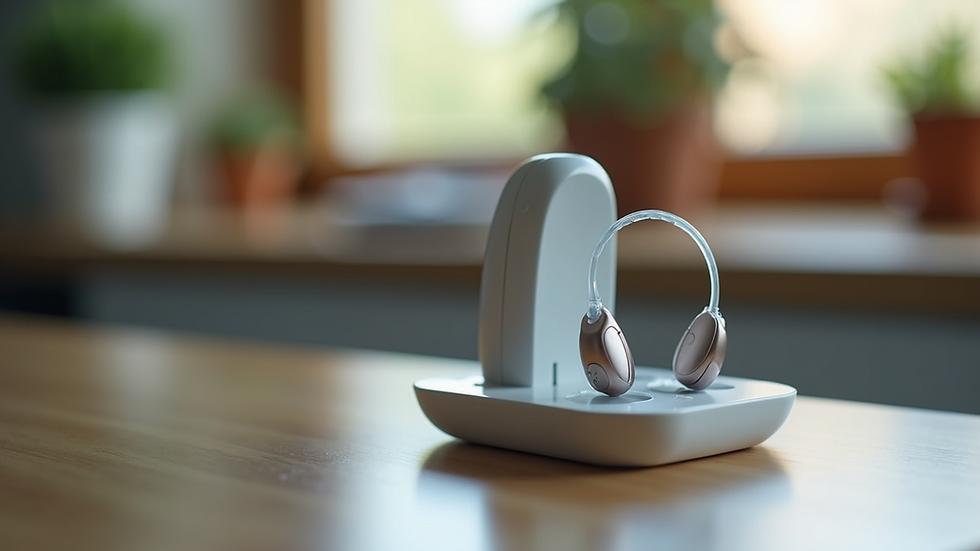Choosing the Right Hearing Aid: A Comprehensive Guide
- Feb 15, 2024
- 2 min read
Introduction:
Hearing loss is a prevalent condition that affects millions of people worldwide. Fortunately, advancements in technology have made it possible for individuals with hearing impairment to regain their ability to hear and communicate effectively. Choosing the right hearing aid is crucial in improving one's quality of life. In this article, we will discuss the key factors to consider when selecting a hearing aid that suits your needs and lifestyle.
1. Consultation with an Audiologist:
Before purchasing a hearing aid, it is essential to consult with a qualified audiologist. They will conduct a thorough examination of your hearing abilities and provide valuable insights into the type and degree of hearing loss you have. The audiologist will also consider your lifestyle, preferences, and budget when recommending the most suitable hearing aid options.
2. Understanding Different Hearing Aid Styles:
There are various hearing aid styles available in the market, each with its unique features and benefits. The most common styles include Behind-the-Ear (BTE), In-the-Ear (ITE), In-the-Canal (ITC), Completely-in-the-Canal (CIC), and Invisible-in-the-Canal (IIC). Understanding the pros and cons of each style will help you make an informed decision based on your specific needs.
3. Assessing Technological Features:
Hearing aids have evolved significantly over the years, incorporating advanced technologies to enhance sound quality and user experience. Some key technological features to consider include noise reduction, feedback cancellation, directional microphones, telecoil compatibility, and wireless connectivity options. Assessing these features will help you choose a hearing aid that aligns with your lifestyle and listening requirements.
4. Consideration of Lifestyle Factors:
Your lifestyle plays a significant role in determining the most suitable hearing aid for you. If you lead an active lifestyle and frequently engage in outdoor activities, a hearing aid with robust durability and water-resistant features may be preferable. Additionally, if you frequently attend social gatherings or work in noisy environments, a hearing aid with superior noise reduction capabilities will be beneficial.
5. Budgetary Considerations:
Hearing aids vary in price depending on their features, brand, and technological advancements. It is essential to establish a budget range and discuss it with your audiologist. They can guide you towards hearing aid options that provide the best value for your money while meeting your specific requirements.
Conclusion:
Choosing the right hearing aid is a crucial decision that can significantly improve your quality of life. By consulting with an audiologist, understanding different styles and technological features, considering lifestyle factors, and establishing a budget, you can make an informed choice. Remember, selecting the right hearing aid is a personal decision that should be based on your individual needs and preferences. Invest in a hearing aid that will enhance your hearing abilities and enable you to actively participate in conversations, enjoy music, and experience the world of sounds with clarity and confidence.





Comments